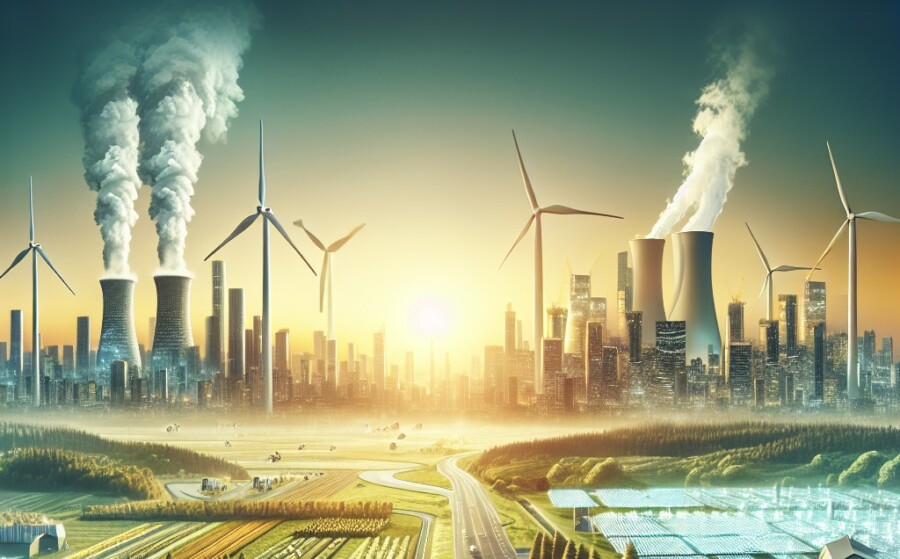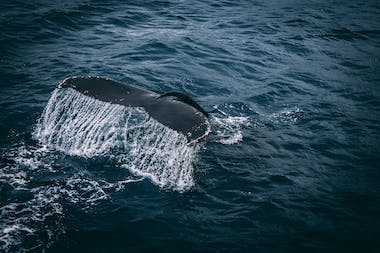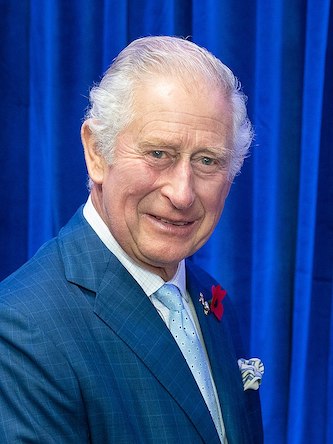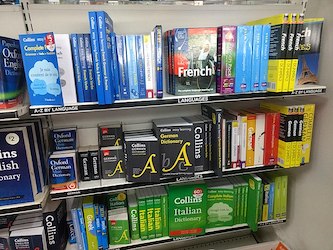The COP28 climate summit is happening right now in Dubai. People from all over the world are coming together to talk about how to fight climate change. The Earth’s climate is changing really fast, and we need to take action quickly. But don’t worry, there are some good ideas being discussed at the summit. Let’s look at five of them.
First, we need to stop using fossil fuels like coal, oil, and gas. These fuels are causing a lot of pollution and making the Earth hotter. Many countries and scientists want to make a deal to get rid of these fuels. But even if we stop using them, it won’t be enough to fix the problem.
Second, we can use renewable energy sources like wind and solar power instead. These sources are getting cheaper, so more people are using them. By 2030, they could supply more than a third of all electricity. But we also need other technologies like batteries and nuclear power to help when the wind isn’t blowing or the sun isn’t shining.
Third, we can switch to electric cars. They don’t pollute as much as cars that run on petrol or diesel. They can reduce emissions by about two-thirds. Electric cars are becoming more popular, and by 2023, they could make up 18% of new car sales. They are also getting cheaper, so more people can afford them.
Another idea is to reduce methane emissions. Methane is a gas that makes the Earth hotter. It comes from things like farming, using fossil fuels, and waste. Over 150 countries have promised to reduce methane emissions by 30% by 2030.
Lastly, we need to capture carbon dioxide (CO2) from the air or from where it comes from. CO2 is a gas that makes the Earth hotter. The natural world already takes in more than half of the CO2 we make, but we’re making it hard for them to do that. We can help by planting more trees and using technology to capture CO2. But these ideas are still new and expensive.
In conclusion, the COP28 climate summit is talking about ways to fight climate change. We need to use less fossil fuels, use more renewable energy, drive electric cars, reduce methane emissions, and capture CO2. It won’t be easy, but these ideas give us hope that we can protect the Earth for future generations.
Original news source: Are the solutions to fight climate change making progress? (BBC)
Listen:
Slow
Normal
Fast
Vocabulary:
| 1 | summit | A meeting where people come together to discuss and make decisions |
| 2 | fossil fuels | Fuels like coal, oil, and gas that come from the remains of plants and animals |
| 3 | pollution | Harmful substances that make the air, water, or land dirty and unsafe |
| 4 | renewable energy | Energy sources that can be used over and over again and won’t run out |
| 5 | emissions | Gases that are released into the air, especially by cars and factories |
| 6 | electric cars | Cars that run on electricity instead of petrol or diesel |
| 7 | methane | A gas that contributes to global warming and comes from farming and waste |
| 8 | capture | To catch or take in something |
| 9 | CO2 | A gas that contributes to global warming and comes from burning fossil fuels |
| 10 | technology | The use of scientific knowledge to solve practical problems |
| 11 | expensive | Costing a lot of money |
| 12 | protect | To keep something safe from harm or damage |
| 13 | generations | All the people born and living at about the same time |
| 14 | climate change | Long-term changes in temperature and weather patterns |
| 15 | action | The act of doing something to achieve a particular goal |
Group or Classroom Activities
Warm-up Activities:
– News Summary
Instructions:
1. Divide the class into small groups.
2. Each group will read the article and discuss the main ideas.
3. Each group will then create a news summary of the article, highlighting the key points.
4. Groups will take turns presenting their summaries to the class.
– Opinion Poll
Instructions:
1. Divide the class into pairs or small groups.
2. Assign each group a specific idea from the article (e.g. using renewable energy, reducing methane emissions, etc.).
3. Each group will come up with arguments in favor of or against their assigned idea.
4. Groups will conduct an opinion poll within the class, asking their classmates whether they agree or disagree with the idea.
5. After gathering the results, groups will present their findings and discuss the reasons behind the opinions.
– Vocabulary Pictionary
Instructions:
1. Write down key vocabulary words from the article on separate pieces of paper.
2. Divide the class into pairs or small groups.
3. One student from each group will pick a word and draw a picture representing that word without speaking.
4. The other student(s) in the group will try to guess the word based on the drawing.
5. The group with the most correct guesses wins.
– Speed Summarizing
Instructions:
1. Divide the class into pairs or small groups.
2. Give each group a different paragraph from the article.
3. Each group will have a set amount of time (e.g. 5 minutes) to read and discuss their paragraph.
4. After the time is up, each group will take turns summarizing their paragraph in 1 minute or less.
5. The class will vote on the most concise and accurate summary.
– Pros and Cons
Instructions:
1. Divide the class into pairs or small groups.
2. Assign each group one of the ideas from the article (e.g. using renewable energy, reducing methane emissions, etc.).
3. Each group will create a pros and cons list for their assigned idea, discussing the advantages and disadvantages.
4. Groups will take turns presenting their lists to the class and engaging in a class-wide discussion about the ideas.
Comprehension Questions:
1. What is the purpose of the COP28 climate summit in Dubai?
2. Why is it important to stop using fossil fuels?
3. What are some examples of renewable energy sources?
4. How can electric cars help reduce pollution?
5. What is methane and why is it a problem for the Earth’s climate?
6. How can we help the natural world in capturing carbon dioxide?
7. Why are the ideas of planting more trees and using technology to capture CO2 considered new and expensive?
8. What is the main message of the article about fighting climate change?
Go to answers ⇩
Listen and Fill in the Gaps:
The COP28 (1)______ (2)______ is happening right now in Dubai. People from all over the world are (3)______ together to talk about how to fight climate change. The Earth’s climate is changing really fast, and we need to take action quickly. But don’t worry, there are some good ideas being discussed at the summit. Let’s look at five of them.
First, we need to stop using (4)______ fuels like coal, oil, and gas. These fuels are causing a lot of pollution and making the Earth hotter. Many countries and scientists want to make a deal to get rid of these fuels. But even if we stop (5)______ them, it won’t be enough to fix the problem.
Second, we can use renewable energy (6)______ like wind and (7)______ power instead. These sources are getting cheaper, so more people are using them. By 2030, they could supply more than a third of all electricity. But we also need other technologies like (8)______ and nuclear power to help when the wind isn’t blowing or the sun isn’t shining.
Third, we can switch to electric cars. They don’t pollute as much as cars that run on petrol or diesel. They can reduce emissions by about two-thirds. Electric cars are (9)______ more popular, and by 2023, they could make up 18% of new car sales. They are also getting cheaper, so more people can afford them.
Another idea is to reduce (10)______ emissions. Methane is a gas that makes the Earth hotter. It comes from things like (11)______, using fossil fuels, and waste. Over 150 countries have promised to reduce methane emissions by 30% by 2030.
Lastly, we need to capture carbon (12)______ (CO2) from the air or from where it comes from. CO2 is a gas that makes the Earth hotter. The natural world already takes in more than half of the CO2 we make, but we’re making it hard for them to do that. We can help by planting more trees and using technology to capture CO2. But these (13)______ are still new and expensive.
In conclusion, the (14)______ climate summit is talking about ways to fight climate (15)______. We need to use less fossil fuels, use more (16)______ energy, drive electric cars, reduce methane emissions, and capture CO2. It won’t be easy, but these ideas give us hope that we can protect the Earth for future generations.
Go to answers ⇩
Discussion Questions:
Students can ask a partner these questions, or discuss them as a group.
1. What are some ways we can fight climate change?
2. How would you feel if all countries agreed to stop using fossil fuels?
3. Do you like the idea of using renewable energy sources like wind and solar power? Why or why not?
4. What do you think about switching to electric cars?
5. How do electric cars help reduce emissions?
6. Do you think it’s important to reduce methane emissions? Why or why not?
7. What are some sources of methane emissions?
8. How can we capture carbon dioxide from the air?
9. Do you think planting more trees is an effective way to fight climate change? Why or why not?
10. What are some challenges we might face in implementing these ideas?
11. How do these ideas give us hope for the future?
12. What are some other ways individuals can contribute to fighting climate change?
13. How do you think climate change will affect future generations?
14. What can we do to protect the Earth for future generations?
15. Do you think it’s important for people to come together at summits like COP28 to discuss climate change? Why or why not?
Individual Activities
Vocabulary Meanings:
Match each word to its meaning.
Words:
1. summit
2. fossil fuels
3. pollution
4. renewable energy
5. emissions
6. electric cars
7. methane
8. capture
9. CO2
10. technology
11. expensive
12. protect
13. generations
14. climate change
15. action
Meanings:
(A) To catch or take in something
(B) Long-term changes in temperature and weather patterns
(C) To keep something safe from harm or damage
(D) Costing a lot of money
(E) Gases that are released into the air, especially by cars and factories
(F) Harmful substances that make the air, water, or land dirty and unsafe
(G) Energy sources that can be used over and over again and won’t run out
(H) All the people born and living at about the same time
(I) The use of scientific knowledge to solve practical problems
(J) A gas that contributes to global warming and comes from farming and waste
(K) A meeting where people come together to discuss and make decisions
(L) Fuels like coal, oil, and gas that come from the remains of plants and animals
(M) A gas that contributes to global warming and comes from burning fossil fuels
(N) The act of doing something to achieve a particular goal
(O) Cars that run on electricity instead of petrol or diesel
Go to answers ⇩
Multiple Choice Questions:
1. What is the main topic of discussion at the COP28 climate summit?
(a) How to fight climate change
(b) How to reduce pollution in cities
(c) How to improve renewable energy sources
(d) How to create more jobs in the energy sector
2. Why do we need to stop using fossil fuels?
(a) They are too expensive to use
(b) They cause a lot of pollution and make the Earth hotter
(c) They are running out and we need to find alternatives
(d) They are not efficient enough to meet our energy needs
3. Which of the following is NOT mentioned as a renewable energy source?
(a) Coal
(b) Wind power
(c) Solar power
(d) Hydroelectric power
4. How much of all electricity could renewable energy sources supply by 2030?
(a) Less than a third
(b) Half
(c) All of it
(d) More than a third
5. How much can electric cars reduce emissions by?
(a) About half
(b) About one-third
(c) About one-fourth
(d) About two-thirds
6. What is methane?
(a) A type of renewable energy source
(b) A type of fossil fuel
(c) A gas that makes the Earth hotter
(d) A type of waste product
7. How many countries have promised to reduce methane emissions by 30% by 2030?
(a) Less than 50
(b) Over 150
(c) Exactly 100
(d) None of the above
8. How can we help the natural world capture more carbon dioxide?
(a) By reducing the use of fossil fuels
(b) By driving electric cars
(c) By planting more trees and using technology to capture CO2
(d) By using renewable energy sources
Go to answers ⇩
True or False Questions:
1. Capturing carbon dioxide from the air or its sources is not being explored as a method to combat climate change.
2. Renewable energy sources such as wind and solar power are being discussed as alternatives to fossil fuels.
3. The COP28 climate summit is currently taking place in Dubai.
4. The summit aims to address the issue of climate change and find solutions.
5. The ideas discussed at the summit do not provide hope for protecting the Earth for future generations.
6. Methane emissions, which contribute to global warming, are not being targeted for reduction by over 150 countries.
7. Fossil fuels like coal, oil, and gas are not causing pollution and contributing to global warming.
8. Electric cars are being promoted as a way to reduce emissions and combat climate change.
Go to answers ⇩
Write a Summary:
Write a summary of this news article in two sentences.
Check your writing now with the best free AI for English writing!
Writing Questions:
Answer the following questions. Write as much as you can for each answer.
Check your answers with our free English writing assistant!
1. What are fossil fuels and why are they a problem for the Earth’s climate?
2. How can renewable energy sources like wind and solar power help fight climate change?
3. How do electric cars contribute to reducing emissions and why are they becoming more popular?
4. What is methane and why is it important to reduce its emissions?
5. How can we help capture carbon dioxide and why is it important to do so?
Answers
Comprehension Question Answers:
1. What is the purpose of the COP28 climate summit in Dubai?
The purpose of the COP28 climate summit in Dubai is for people from all over the world to come together and discuss how to fight climate change.
2. Why is it important to stop using fossil fuels?
It is important to stop using fossil fuels because they cause a lot of pollution and make the Earth hotter.
3. What are some examples of renewable energy sources?
Some examples of renewable energy sources are wind and solar power.
4. How can electric cars help reduce pollution?
Electric cars can help reduce pollution because they don’t pollute as much as cars that run on petrol or diesel. They can reduce emissions by about two-thirds.
5. What is methane and why is it a problem for the Earth’s climate?
Methane is a gas that makes the Earth hotter. It comes from things like farming, using fossil fuels, and waste. It is a problem for the Earth’s climate because it contributes to global warming.
6. How can we help the natural world in capturing carbon dioxide?
We can help the natural world in capturing carbon dioxide by planting more trees. Trees absorb carbon dioxide and release oxygen. We can also use technology to capture carbon dioxide from the air or from where it comes from.
7. Why are the ideas of planting more trees and using technology to capture CO2 considered new and expensive?
The ideas of planting more trees and using technology to capture CO2 are considered new and expensive because they are still being developed and implemented on a large scale. It takes time and money to plant trees and develop technology that can effectively capture carbon dioxide.
8. What is the main message of the article about fighting climate change?
The main message of the article is that there are several good ideas being discussed at the COP28 climate summit to fight climate change. These ideas include using less fossil fuels, using more renewable energy, driving electric cars, reducing methane emissions, and capturing carbon dioxide.
Go back to questions ⇧
Listen and Fill in the Gaps Answers:
(1) climate
(2) summit
(3) coming
(4) fossil
(5) using
(6) sources
(7) solar
(8) batteries
(9) becoming
(10) methane
(11) farming
(12) dioxide
(13) ideas
(14) COP28
(15) change
(16) renewable
Go back to questions ⇧
Vocabulary Meanings Answers:
1. summit
Answer: (K) A meeting where people come together to discuss and make decisions
2. fossil fuels
Answer: (L) Fuels like coal, oil, and gas that come from the remains of plants and animals
3. pollution
Answer: (F) Harmful substances that make the air, water, or land dirty and unsafe
4. renewable energy
Answer: (G) Energy sources that can be used over and over again and won’t run out
5. emissions
Answer: (E) Gases that are released into the air, especially by cars and factories
6. electric cars
Answer: (O) Cars that run on electricity instead of petrol or diesel
7. methane
Answer: (J) A gas that contributes to global warming and comes from farming and waste
8. capture
Answer: (A) To catch or take in something
9. CO2
Answer: (M) A gas that contributes to global warming and comes from burning fossil fuels
10. technology
Answer: (I) The use of scientific knowledge to solve practical problems
11. expensive
Answer: (D) Costing a lot of money
12. protect
Answer: (C) To keep something safe from harm or damage
13. generations
Answer: (H) All the people born and living at about the same time
14. climate change
Answer: (B) Long-term changes in temperature and weather patterns
15. action
Answer: (N) The act of doing something to achieve a particular goal
Go back to questions ⇧
Multiple Choice Answers:
1. What is the main topic of discussion at the COP28 climate summit?
Answer: (a) How to fight climate change
2. Why do we need to stop using fossil fuels?
Answer: (b) They cause a lot of pollution and make the Earth hotter
3. Which of the following is NOT mentioned as a renewable energy source?
Answer: (a) Coal
4. How much of all electricity could renewable energy sources supply by 2030?
Answer: (d) More than a third
5. How much can electric cars reduce emissions by?
Answer: (d) About two-thirds
6. What is methane?
Answer: (c) A gas that makes the Earth hotter
7. How many countries have promised to reduce methane emissions by 30% by 2030?
Answer: (b) Over 150
8. How can we help the natural world capture more carbon dioxide?
Answer: (c) By planting more trees and using technology to capture CO2
Go back to questions ⇧
True or False Answers:
1. Capturing carbon dioxide from the air or its sources is not being explored as a method to combat climate change. (Answer: False)
2. Renewable energy sources such as wind and solar power are being discussed as alternatives to fossil fuels. (Answer: True)
3. The COP28 climate summit is currently taking place in Dubai. (Answer: True)
4. The summit aims to address the issue of climate change and find solutions. (Answer: True)
5. The ideas discussed at the summit do not provide hope for protecting the Earth for future generations. (Answer: False)
6. Methane emissions, which contribute to global warming, are not being targeted for reduction by over 150 countries. (Answer: False)
7. Fossil fuels like coal, oil, and gas are not causing pollution and contributing to global warming. (Answer: False)
8. Electric cars are being promoted as a way to reduce emissions and combat climate change. (Answer: True)
Go back to questions ⇧















